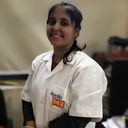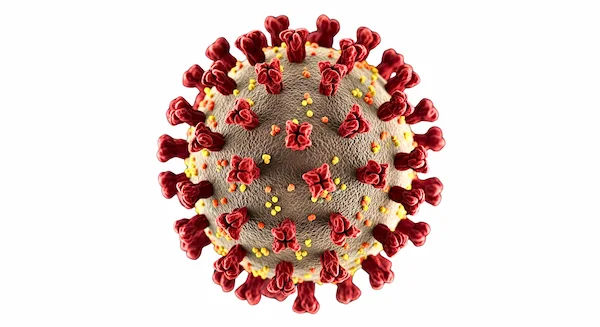What Leads To Signs Of Coronavirus Treatments Types?
Understand what leads to signs of coronavirus, including infection causes and symptom development. Explore various treatment types, from antiviral drugs to supportive care, for effective COVID-19 management and recovery.

Written by Dr. Md Yusuf Shareef
Reviewed by Dr. Shaik Abdul Kalam MD (Physician)
Last updated on 13th Jan, 2026

The landscape of coronavirus treatments has evolved dramatically since the pandemic's beginning. While vaccination remains our strongest shield, understanding the available coronavirus treatments types is crucial for effectively managing the illness if you contract it. The right approach isn't one-size-fits-all; it depends on a multitude of factors, from the severity of your symptoms to your underlying health. This guide demystifies the array of treatments available, explaining what they are, how they work, and who they are for. Whether you're looking for advice on managing mild coronavirus symptoms at home or seeking information on advanced clinical types of care, we break down everything you need to know to navigate your recovery journey confidently and safely.
Understanding How COVID-19 Treatment is Determined
You won’t receive a standard prescription for COVID-19. Doctors decide on a treatment course based on a specific set of clinical criteria designed to provide the right intervention to the right patient at the right time.
The Role of Symptom Severity
The most significant factor is how sick you are. Treatments are broadly categorized for:
• Mild to Moderate Illness: Individuals who have symptoms like fever, cough, or fatigue but can breathe comfortably and maintain good oxygen levels at home. This often involves supportive care or oral antivirals.
• Severe Illness: Characterized by difficulty breathing, chest pain, low oxygen saturation (typically below 94%), or other signs of pneumonia. These patients usually require hospitalization.
• Critical Illness: Involves respiratory failure, septic shock, or multi-organ dysfunction, requiring intensive care unit (ICU) support.
COnsult Top Specialists
Individual Risk Factors That Influence Treatment Choice
Even with mild initial symptoms, some people are at a much higher risk of progressing to severe disease. Doctors prioritize treatments for those with risk factors such as:
• Advanced age (especially over 65)
• Being unvaccinated or not up-to-date on boosters
• Underlying conditions like obesity, diabetes, heart or lung disease
• A compromised immune system (e.g., from cancer treatment, organ transplant, or HIV)
Managing Mild Coronavirus Symptoms
Most COVID-19 cases are mild and can be managed effectively at home, much like dealing with a bad flu.
Supportive Care and Over-the-Counter Remedies
The goal here is to relieve symptoms and support your body’s natural immune response. This includes:
• Rest: Prioritize sleep and reduce physical activity to help your body fight the virus.
• Hydration: Drink plenty of fluids like water, broth, and electrolyte solutions to avoid dehydration from fever.
• Fever and Pain Management: Over-the-counter medications like acetaminophen (Tylocid) or ibuprofen (Brufen) can reduce fever and alleviate body aches and headaches.
• Respiratory Symptom Relief: Using a humidifier, taking steamy showers, or gargling with salt water can ease a sore throat and cough.
Monitoring Your Symptoms:
While managing mild covid treatment at home, vigilant monitoring is key. Use a pulse oximeter to track your blood oxygen levels if possible. Seek immediate medical attention if you experience:
• Trouble breathing
• Persistent pain or pressure in the chest
• New confusion or inability to wake/stay awake
• Pale, gray, or blue-colored skin, lips, or nail beds
If your condition does not improve or you're unsure about your symptoms, consult a doctor online with Apollo24|7 for further evaluation without leaving your home.
Prescription Antiviral Treatments for COVID-19
For those at high risk of severe illness, prescription antiviral drugs are a pivotal tool to stop the virus from replicating in the body.
How Oral Antiviral Pills Work?
Drugs like Paxlovid (nirmatrelvir and ritonavir) and Lagevrio (molnupiravir) are designed to be taken orally at home soon after diagnosis. They work by interfering with the virus's ability to multiply, thereby reducing the viral load in your body and potentially preventing hospitalization.
Who is Eligible for Antiviral Therapy?
Eligibility is primarily for individuals with mild-to-moderate COVID-19 who are at high risk of progression to severe disease. Antiviral pills for coronavirus must be started within 5 days of symptom onset to be most effective. A healthcare provider will assess your risk factors and current medications to determine if you are a candidate.
Hospital-Based Treatments for Severe COVID-19
When the virus causes severe inflammation and complications, treatment shifts to a hospital setting.
• Anti-Inflammatory Drugs and Corticosteroids
In severe cases, the body's immune response can cause dangerous inflammation in the lungs. Dexamethasone, a corticosteroid, is a cornerstone treatment for hospitalized patients requiring oxygen. It works by dampening this overactive immune response, reducing mortality.
• Oxygen Therapy and Respiratory Support
The primary goal in severe COVID-19 pneumonia is to ensure the body gets enough oxygen. This can range from supplemental oxygen delivered through nasal tubes to advanced mechanical ventilation or ECMO (extracorporeal membrane oxygenation) in the most critical cases.
The Impact of Variants on Treatment Efficacy
The virus's evolution impacts how well treatments work. Some monoclonal antibody treatments have lost their authorization as new variants emerged that were resistant to them. Conversely, antiviral pills like Paxlovid have largely retained their efficacy across variants because they target a part of the virus that is less prone to mutation. Health authorities continuously monitor and update treatment guidelines based on this data.
Prevention Through Vaccination
It cannot be overstated: the most effective coronavirus treatment is to avoid getting severely ill in the first place. COVID-19 vaccination and boosters are profoundly effective at preventing severe illness, hospitalization, and death. They prime your immune system to fight the virus immediately upon exposure, significantly reducing your likelihood of needing any of the treatments described above.
Conclusion
Navigating the world of coronavirus treatments types can feel complex, but understanding the basic principles empowers you to take charge of your health. From supportive home care for mild cases to powerful antivirals for high-risk individuals and advanced hospital care for the severely ill, a robust toolkit exists to fight COVID-19. The common thread is the critical importance of timing and professional guidance. If you experience symptoms, especially if you have known risk factors, don't hesitate to seek a medical opinion promptly. Consult a doctor online with Apollo24|7 to quickly discuss your symptoms and determine the best course of action for your situation. Staying informed, vaccinated, and vigilant is our best strategy for moving forward.
COnsult Top Specialists
COnsult Top Specialists

Dr. Vishal Kumar H
General Physician/ Internal Medicine Specialist
8 Years • MBBS, master class in critical care medicine, Advanced Post Graduate Diploma in Non Invasive Cardiology, certificate course in Cardiovascular Disease & Stroke, Certificate course in Common Mental Disorder
Bengaluru
Apollo Clinic, Basavanagudi, Bengaluru

Dr. Mijanur Rahaman Mondal
General Practitioner
3 Years • MBBS
Kolkata
Dr Utsa Basu Clinic, Kolkata
(25+ Patients)

Dr. Ashita Kuruvilla
General Physician/ Internal Medicine Specialist
7 Years • MBBS
East Midnapore
VIVEKANANDA SEBA SADAN, East Midnapore

Dr Aakash Andgi
General Physician/ Internal Medicine Specialist
9 Years • MBBS MD
Bengaluru
Apollo Clinic, JP nagar, Bengaluru

Dr. Bhargavi Botlagunta
General Physician/ Internal Medicine Specialist
14 Years • MBBS, MD - General Medicine
Bengaluru
Apollo Clinic, Sarjapur Road, Bengaluru
COnsult Top Specialists

Dr. Vishal Kumar H
General Physician/ Internal Medicine Specialist
8 Years • MBBS, master class in critical care medicine, Advanced Post Graduate Diploma in Non Invasive Cardiology, certificate course in Cardiovascular Disease & Stroke, Certificate course in Common Mental Disorder
Bengaluru
Apollo Clinic, Basavanagudi, Bengaluru

Dr. Mijanur Rahaman Mondal
General Practitioner
3 Years • MBBS
Kolkata
Dr Utsa Basu Clinic, Kolkata
(25+ Patients)

Dr. Ashita Kuruvilla
General Physician/ Internal Medicine Specialist
7 Years • MBBS
East Midnapore
VIVEKANANDA SEBA SADAN, East Midnapore

Dr Aakash Andgi
General Physician/ Internal Medicine Specialist
9 Years • MBBS MD
Bengaluru
Apollo Clinic, JP nagar, Bengaluru

Dr. Bhargavi Botlagunta
General Physician/ Internal Medicine Specialist
14 Years • MBBS, MD - General Medicine
Bengaluru
Apollo Clinic, Sarjapur Road, Bengaluru
More articles from Coronavirus disease
Frequently Asked Questions
1. What is the most effective treatment for COVID-19?
There is no single 'most effective' treatment for everyone. The best treatment depends on the individual's circumstances. For most, it's supportive care. For high-risk individuals, antiviral pills like Paxlovid are highly effective at preventing severe outcomes if taken early.
2. Can I get Paxlovid if I'm vaccinated?
Yes, being vaccinated does not automatically disqualify you. Eligibility for Paxlovid is based on your current symptoms and whether you have underlying health conditions that put you at risk for severe disease, regardless of vaccination status.
3. What over-the-counter medicine is best for COVID-19?
There is no specific OTC medicine for COVID-19 itself. Use medicines to manage symptoms: acetaminophen or ibuprofen for fever and aches, and cough suppressants or expectorants for a cough. Always follow label instructions and consult a pharmacist if you have questions.
4. How long does it take to recover with treatment?
Recovery time varies. With mild cases and home care, most people feel better within 1-2 weeks. Those who receive antivirals often see a quicker reduction in severe symptoms. Recovery from severe COVID-19 requiring hospitalization can take weeks or months.
5. Are there new treatments being developed?
Yes, research is ongoing. Scientists continue to develop new antiviral drugs, monoclonal antibodies effective against emerging variants, and other therapies to better modulate the immune system's response to the virus.

